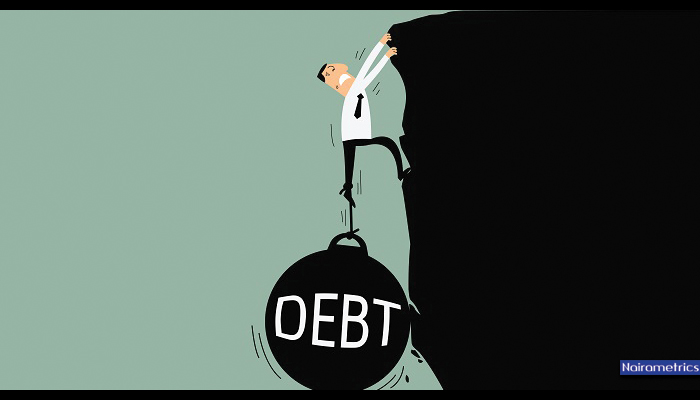A total of about 2,328,183 Nigerians are indebted to deposit money banks in Nigeria as at December 2017. This is according to data from the National Bureau of Statistics (NBS).
See table below;
Debt profile of Nigerians
- According to the data, the total number of borrowers in 2017 is at a three year low and has dropped by as much as 700,000 Nigerians when compared to the 3 million borrowers as at December 2015.
- In terms of the total amount borrowed, Nigerians currently owe the banking sector about N15.93 trillion in loans up from N13.3 trillion in 2015 and from N13.35 trillion in 2016.
- Interestingly about N13.1 trillion of the total loans borrowed from the banks were lent to 3,891 customers up from N13.1 trillion, N9.3 trillion also lent to 2,247 and 2,048 customers in 2016 and 2017 respectively. These customers have a loan outstanding of about N1 billion and above.
- Over 2.2 million Nigerians borrowed less than N1 million from deposit money banks
- According to data from the Central Bank of Nigeria in May 2018, about 31 million account customers have been captured in its Bank Verification Number (BVN) exercise.
Further analysis
- The data also reveals that on the average customers who borrow N1 million or less borrow on an average N53.3k per person compared to N97k per person in 2016. It is also down from N88.2k per person in 2016.
- For the top borrowers who owe above N1 billion their average debt is about N3.39 billion down from N5.84 billion in 2016 and N4.5 billion in 2017.
- It appears though that Nigerians seem to be borrowing less.
Interpretation
- While the data does not distinguish between individual and corporate customers or separate unique customers, it suggests less than 2% of Nigerians including businesses actually accessed credit from the banking sector.
- Over the last three years, Nigeria’s public debt profile has risen from about $63 billion in June 2015 to about $73 billion as at June 2018. But while government borrowing has significantly increased over time, it appears the number of Nigerians who are in debt have reduced considerably.
- This could be as a result of the massive deleveraging that occurred between 2016 and 2017 as more Nigerians paid off their loans following the recession and devaluation of the naira.
- Nigerian banks have also focussed more on lending to the public sector as risk-free debt securities offer mouth-watering yields.
- With government securities such as treasury bills and government bonds attracting high-interest rates, banks prime lending rates have risen above 20% on the average making it difficult for more Nigerians to borrow.
- Nigerians still rely on Cooperatives, family, and friends to access credit despite all the efforts of the CBN.
Opportunity
- The low indebted customer to population reinforces the need for Fintech driven peer-to-peer lending in the country.
- Most Fintech companies in Nigeria have seen the huge opportunity and have positioned themselves to tap this market.
- Loans range from between 2% to 15% in some cases with borrowers being able to access credit without collateral or any of their stringent requirements requested by banks.
- Sectors like the housing market which are traditionally areas that create more loans for customers is still in its infancy in Nigeria as poor funding stifles housing production.
- The data also confirms a huge market that is yet to be fully explored by the banking sector. Currently over 7 million Nigerians contribute to a pension fund.
